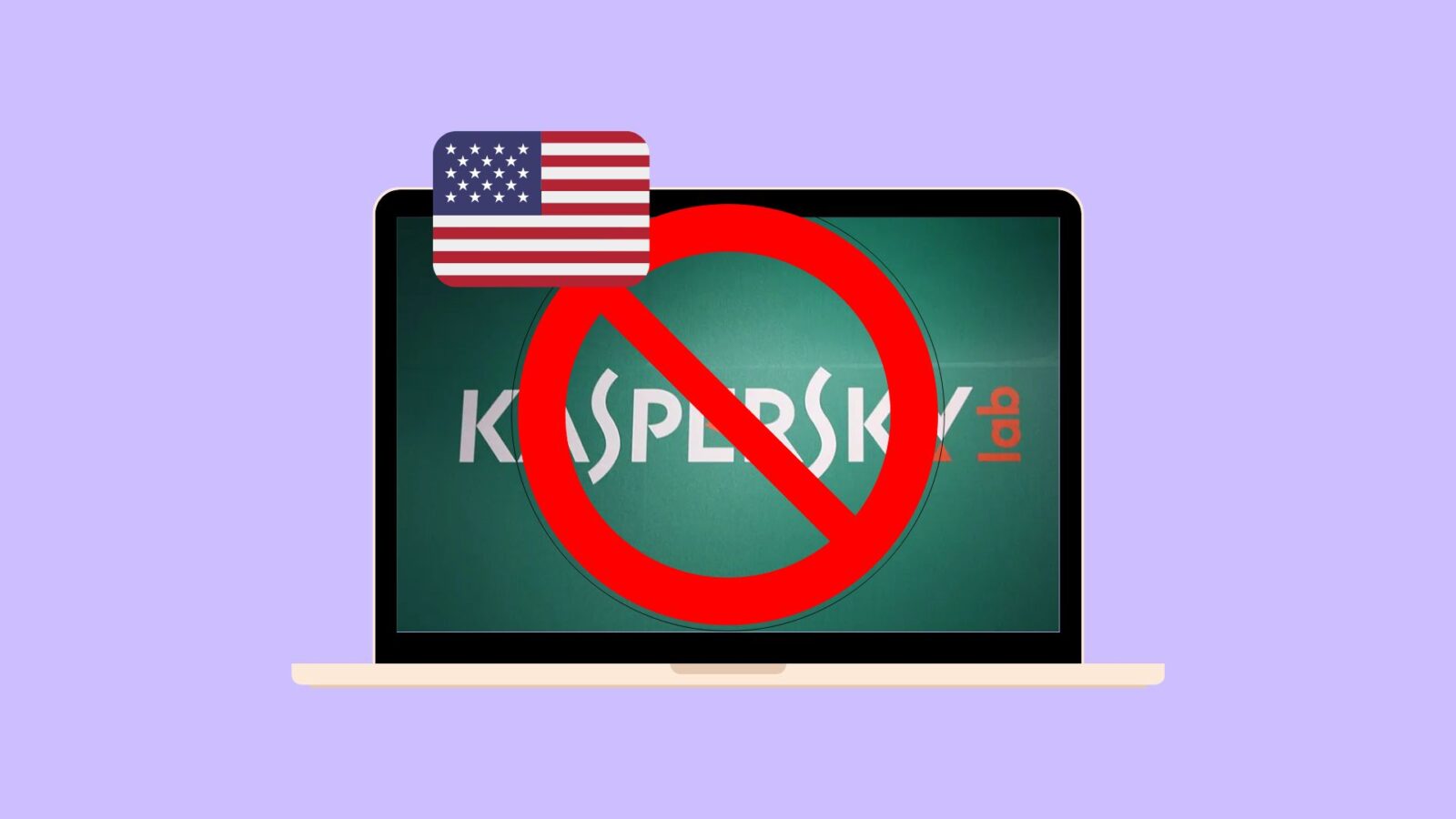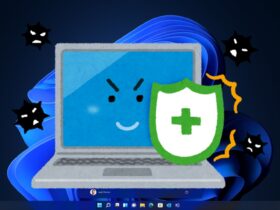Daftar Isi
In a decisive action underscoring escalating cybersecurity concerns, the United States government has enacted a comprehensive ban on the sale, resale, and licensing of Kaspersky security products and services within its borders. This measure, spearheaded by the Department of Commerce, follows an in-depth investigation into the potential national security threats posed by Kaspersky’s operations in the U.S.
Roots of the Ban: National Security Risks
The decision to ban Kaspersky products was driven by mounting evidence linking the cybersecurity firm to national security risks. Here’s a closer look at the key reasons behind this move:
Alleged Ties to the Russian Government
The investigation revealed significant concerns about Kaspersky’s connections to the Russian government. Given Russia’s sophisticated offensive cyber capabilities and documented interference in various global cyber operations, the U.S. government viewed Kaspersky’s proximity to Russian authorities as a critical vulnerability. There were apprehensions that the Russian government could potentially exert influence over Kaspersky to facilitate cyber espionage or disruptive activities against U.S. interests .
Potential for Espionage
The findings indicated that Kaspersky’s software, widely used in various sectors across the U.S., could be exploited for espionage purposes. Security agencies were particularly alarmed by the possibility that Kaspersky’s antivirus solutions, which have deep access to system data, could be manipulated to siphon sensitive information or facilitate unauthorized access to critical infrastructure .
Historical Precedents and Expert Warnings
The decision is also informed by past incidents and expert analyses highlighting the vulnerabilities associated with foreign cybersecurity products. Historical precedents have shown that software with potential foreign government ties can be leveraged for cyber intrusions, making a strong case for preemptive measures to safeguard national security .
Read More: Microsoft Defender vs Third-Party Antivirus: Which Offers Superior Security?
What Kaspersky Users Need to Know About the U.S. Ban
The recent U.S. ban on Kaspersky products has left many current users wondering about their next steps. While the prohibition impacts new agreements and updates, existing users still have a window to transition away from Kaspersky software. Here’s what you need to know to navigate this change effectively.
Understanding Your Position:
- Legal Status: As of now, individuals and businesses already using Kaspersky products will not face any legal penalties for continued use. The ban primarily targets new sales, renewals, and licensing agreements.
- Cybersecurity Risks: While there are no immediate legal repercussions, users must be aware of the potential cybersecurity risks associated with continuing to use Kaspersky software. Given the U.S. government’s concerns over national security, the software may be vulnerable to exploitation, which could compromise sensitive data and system integrity.
Advisory for Users:
- Risk Assessment: It’s crucial to conduct a risk assessment of your current security posture. Consider the potential threats and vulnerabilities that may arise from continued use of Kaspersky products in light of the U.S. government’s findings.
- Planning Transition: Begin planning your transition to alternative security solutions. Evaluate other reputable cybersecurity options that align with your security needs and organizational requirements.
Transition Timeline: Key Dates and Actions
Immediate Actions for Businesses and Consumers:
- September 29, 2024 Deadline: From September 29, 2024, Kaspersky will be prohibited from providing antivirus signature updates and codebase updates in the U.S. This means that the software will no longer receive crucial updates necessary for detecting and mitigating new threats.
- Contract Termination: Kaspersky is already barred from entering into new agreements related to its security products with U.S. individuals and entities. Users with existing contracts will need to explore alternative security arrangements before the deadline.
Transition Period:
- Three-Month Grace Period: A three-month transition period is in place, giving consumers and businesses time to switch to alternative cybersecurity solutions. During this period, Kaspersky users should actively seek out and implement new security measures to replace their current software.
- Identifying Alternatives: Use this time to research and select new antivirus and cybersecurity solutions. Look for products that offer robust security, ease of use, and compatibility with your systems. Consider consulting with cybersecurity experts to ensure a smooth transition.
Implementation Steps:
- Data Backup: Before making any changes, back up all essential data and configurations. This ensures that your information remains secure during the transition process.
- New Software Installation: Install the new cybersecurity software on all relevant systems and devices. Follow best practices for configuration and setup to maximize protection.
- System Monitoring: Monitor your systems closely during and after the transition to identify and address any potential issues or vulnerabilities that may arise.
Moving Forward: Strengthening Cybersecurity
Adopting a Comprehensive Approach:
- Regular Updates: Ensure that your new security software is regularly updated to keep pace with evolving threats. This includes antivirus definitions, software patches, and security protocols.
- User Education: Educate your team or household about the new security software and any changes to security practices. Effective training helps in minimizing human errors that can lead to security breaches.
- Continuous Assessment: Periodically assess your security measures to adapt to new challenges. Regular audits and updates to your cybersecurity strategy can help in maintaining robust defenses.
Exploring Advanced Security Solutions:
- Multilayered Security: Consider implementing a multilayered security approach that combines antivirus software with other tools such as firewalls, intrusion detection systems, and endpoint protection.
- Cloud Security Options: Explore cloud-based security solutions that offer scalability and centralized management, especially if your organization operates in a distributed environment.
The U.S. ban on Kaspersky products is a significant move aimed at bolstering national security, and it presents a clear call to action for current users. While the immediate legal impact is minimal, the potential cybersecurity risks necessitate a proactive approach to transition away from Kaspersky. By planning effectively and adopting robust alternatives, users can ensure their cybersecurity posture remains strong, protecting their data and systems from evolving threats. As you navigate this transition, focus on enhancing your overall cybersecurity strategy to adapt to the changing landscape and safeguard against future risks.
Kaspersky’s Response to the U.S. Ban: What It Means for Cybersecurity
Kaspersky Lab has publicly defended its stance in light of the recent U.S. government ban on its products. The cybersecurity firm asserts that its software poses no threat to U.S. national security and highlights its longstanding contributions to combating global cyber threats. However, the ramifications of this ban could extend far beyond Kaspersky, potentially reshaping the broader cybersecurity landscape.
Assurance of Safety:
- Company’s Stand: Kaspersky insists that its products are secure and do not jeopardize U.S. national security. The company emphasizes its track record of protecting against a variety of cyber threats targeting U.S. interests and those of its allies.
- Transparency Measures: In response to past criticisms, Kaspersky has undertaken transparency initiatives, such as moving data centers to Switzerland and allowing third-party audits. These measures aim to reassure stakeholders about the integrity and safety of its operations.
Contribution to Cybersecurity:
- Historical Contributions: Kaspersky has played a significant role in identifying and mitigating global cyber threats. Its research and threat intelligence have been pivotal in uncovering high-profile cyberattacks and malware campaigns, benefiting the international cybersecurity community.
- Collaborative Efforts: The company has engaged in collaborations with law enforcement and other cybersecurity firms to enhance global cyber defense mechanisms. These partnerships underscore its commitment to cybersecurity beyond commercial interests.
Broader Implications for the Cybersecurity Industry
Industry-Wide Impact:
- Ripple Effects: The ban on Kaspersky could have wider implications for the cybersecurity industry. As organizations seek alternatives, there may be increased scrutiny on the geopolitical affiliations and data handling practices of other cybersecurity vendors.
- Trust and Transparency: The situation highlights the growing importance of trust and transparency in cybersecurity products. Vendors might face heightened demands for transparency regarding their operations and affiliations to reassure users about the safety of their products.
Shifts in Market Dynamics:
- Market Shifts: With Kaspersky restricted from the U.S. market, competitors may see opportunities to fill the gap. This could lead to shifts in market dynamics as organizations evaluate and adopt alternative security solutions.
- Innovation and Competition: The increased competition may spur innovation as cybersecurity firms strive to differentiate themselves and meet heightened user expectations for security and transparency.
Evaluating Risks:
- Security Concerns: Existing users should carefully weigh the potential cybersecurity risks associated with continuing to use Kaspersky products in light of the U.S. government’s findings. Although there are no immediate legal consequences, users must consider the implications of potential vulnerabilities.
- Reputation Considerations: Beyond technical risks, users should also consider reputational risks. Continued use of Kaspersky products might raise concerns among clients and partners regarding the organization’s commitment to adhering to recommended security practices.
Transition Strategies:
- Alternative Solutions: Users are encouraged to begin transitioning to alternative security solutions. This involves evaluating other reputable vendors, understanding their features, and ensuring they align with specific security needs.
- Proactive Measures: During the transition, users should implement best practices for cybersecurity, such as regular data backups, continuous monitoring, and employee training on the new systems to maintain robust defenses.
Looking Ahead: The Evolving Cybersecurity Landscape
National Security Priorities:
- Policy Reflections: The Kaspersky ban reflects broader national security concerns about foreign influence on cybersecurity products. It underscores the need for vigilance in protecting critical systems and data from potential threats.
- Policy Development: Governments and regulatory bodies may continue to develop policies that address the security implications of software and technology originating from specific geopolitical contexts.
Adaptation and Resilience:
- User Adaptation: As users transition to alternative solutions, the cybersecurity landscape will continue to evolve. Organizations must remain adaptable and resilient, leveraging new technologies and strategies to safeguard against emerging threats.
- Future Innovations: The industry may see a surge in innovations focused on enhancing security, transparency, and user trust. Companies that prioritize these aspects will likely play a significant role in shaping the future of cybersecurity.
Kaspersky’s response to the U.S. ban underscores its commitment to security and transparency, yet the broader implications for the industry are undeniable. Existing users must carefully consider the risks and proactively transition to alternative solutions. As the cybersecurity landscape continues to evolve, trust, transparency, and adaptability will be paramount in safeguarding critical systems and data against an ever-changing array of cyber threats.


































